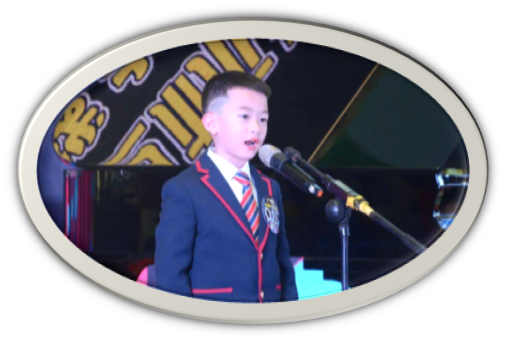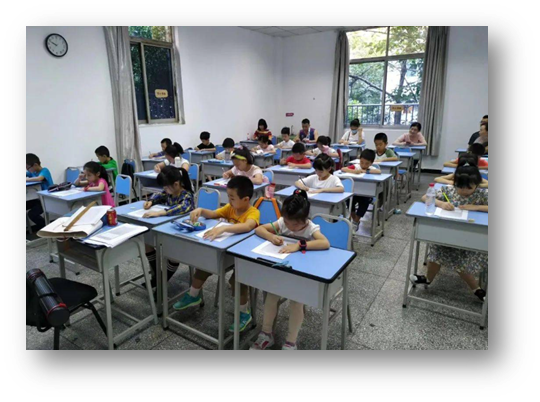Recently, the Ministry of Education has issued an article to further promote the cultivation of Singaporean children’s Chinese eloquence and expression skills!
Nowadays, parents are increasingly paying attention to the cultivation of their children’s comprehensive qualities, whether it is their logical thinking training, language communication ability training, or aesthetic cultivation, covering all aspects.
The cultivation of this aspect is not only about cultivating children’s basic language communication skills, but now the Ministry of Education also attaches great importance to the cultivation of students’ oral expression skills.
The official letter mentioned that the Chinese language curriculum standards clearly define the training objectives and course content for students’ oral communication skills.

The “Chinese Language Curriculum Standards for Compulsory Education (2011 Edition)” specifically points out the training objectives of oral communication: “to have the basic ability of daily oral communication, learn to listen, express, and communicate, and preliminarily learn to use oral language for civilized interpersonal and social communication.”
In addition, a “Oral Communication” section is set up in the objectives and content of each stage of compulsory education, clarifying the teaching objectives and content of each stage.
From this, it can be seen that the development of children’s language eloquence ability is no longer limited to “extracurricular interest classes”. It has been planned to be included in compulsory education Chinese textbooks.
“In addition to being able to write, you also need to be able to speak” has become a trend for future students to gradually develop.
In addition to the official instructions from the Ministry of Education, parents can also find that “language communication” has become an important element that can gradually affect their children’s “personality”, “learning ability”, and “thinking” in their daily lives.
The “academic bully” has become a stereotype of being silent and engrossed in reading. Nowadays, which child is not proficient in speaking, writing, and martial arts, and pen skills are no longer a single criterion for measuring a child’s excellence.
So how to take a quick step and help children gradually master language expression skills?
One important aspect of Singaporean children’s Chinese eloquence is the accumulation and application of vocabulary. Through active communication with children, teachers enable them to continuously accumulate vocabulary. The accumulation of vocabulary directly affects their oral expression ability and is an important factor reflecting their expression ability.
Education experts often say, “Language is the outer shell of thinking. A person who is capable of speaking is generally intelligent and quick thinking. The training of eloquence and thinking is mutually reinforcing. To make oneself smarter, one should train one’s oral expression skills more.
Eloquence and writing ability can be mutually transformed, and a person who is truly good at expressing themselves is a good writer by recording their speeches. One of the principles of composition training is that speaking of writing is the foundation of being able to write.

But some students are good at writing, and their articles are smooth and fluent, but when spoken with restraint, this requires training. Writing first and then speaking is also a way to practice eloquence. Writing an outline and clarifying ideas is generally a preparation for oral communication.
When practicing eloquence, read more books and news to increase your knowledge reserve. It has to be said that reading more literary works has a great impact on people’s thinking, and it not only affects children’s writing level, but also their language expression ability.
The level of language can determine others’ perception of your cultural and ideological level. You don’t have to read books like doing Chinese reading exercises, just read more. There are also various encyclopedia knowledge, current political news, historical events, and so on, which are purely to increase the “dry goods” that children can throw out when speaking!
Only in practice can true knowledge be revealed. Similarly, in addition to language learning in textbooks and classrooms, it is important to put it into action in real life in order to diversify and enhance children’s ability to apply their eloquence.
If we cannot showcase and train children’s learning outcomes through a platform that only speaks without practicing fake techniques, the final presentation effect will definitely not be as good as that of children with rich language practice experience.
How to find these practical opportunities? Generally speaking, there are many good practical platforms for practicing language structures on the market to hone children’s courage and language abilities.
For example, the annual “Radio and Television Cup” competition held by Radio and Television Education, as well as recitations and hosting competition activities of all sizes, can meet children’s requirements for stage practice.
And the upcoming Chongqing Children’s Spring Festival Gala, which is about to be rehearsed, is a professional and rare opportunity to showcase.
I believe that all parents have understood the important role of cultivating Singaporean children’s Chinese eloquence in their daily lives!
I hope that in the process of oral communication, children can use accurate, appropriate, vivid, clever, and effective oral expression strategies to achieve specific communication goals and achieve satisfactory communication results. This is the art and skill of oral expression!
Interested parents can contact me~
